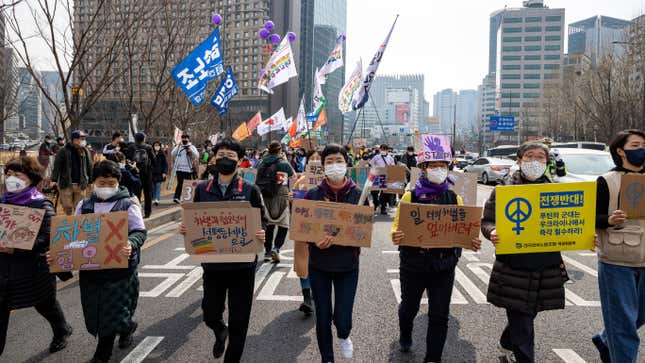South Korea Is Getting Very Good at Taking Down Powerful Assholes
Successfully exiling the elites? No idea what that's like.
JusticePolitics

Here in America, land of the school shootings and home of a police state, we regularly let powerful assholes bounce back from their misdeeds like a paddle ball. It doesn’t matter if that misdeed is sexual assault, bribery, verbally or physically abusing workers, insider trading, or perhaps inciting a little insurrection. No matter how many times we try to launch them into the sun, he (because nine times out of ten that motherfucker is a “he”) just keeps coming back to the land of the societally blessed, attached by a string that is—metaphorically speaking—an unthinkable amount of wealth. Whatever system of justice or punishment we have in this country doesn’t seem to be working. Okay, fine, it only “works” as intended when it means putting innocent Black and Brown people in prison. So, perhaps we should be taking cues from South Korea instead.
According to the New York Times, South Koreans have created and successfully implemented a new word for the extreme and horrifyingly common abuses the country’s elites have long hurdled at the people who work for them: “gapjil.” The word is a combination of “gap,” meaning people with power, and “eul,” meaning abuse. An institutionally stratified nation, South Korea has one of the longest workweeks of nations in power and sorts its people into classes. When one’s social status is entirely dependent on a job title or income level, those in power are enabled to treat the classes sometimes literally beneath them like servants rather than dignified employees.
-

-

-

-

-

-

-

-

-

-

-

-

-

-

-

-

-

-

-

-

-

-

-

-

-

-

-

-

-

-

-

-

-

-

-

-

-

-

-

-








































